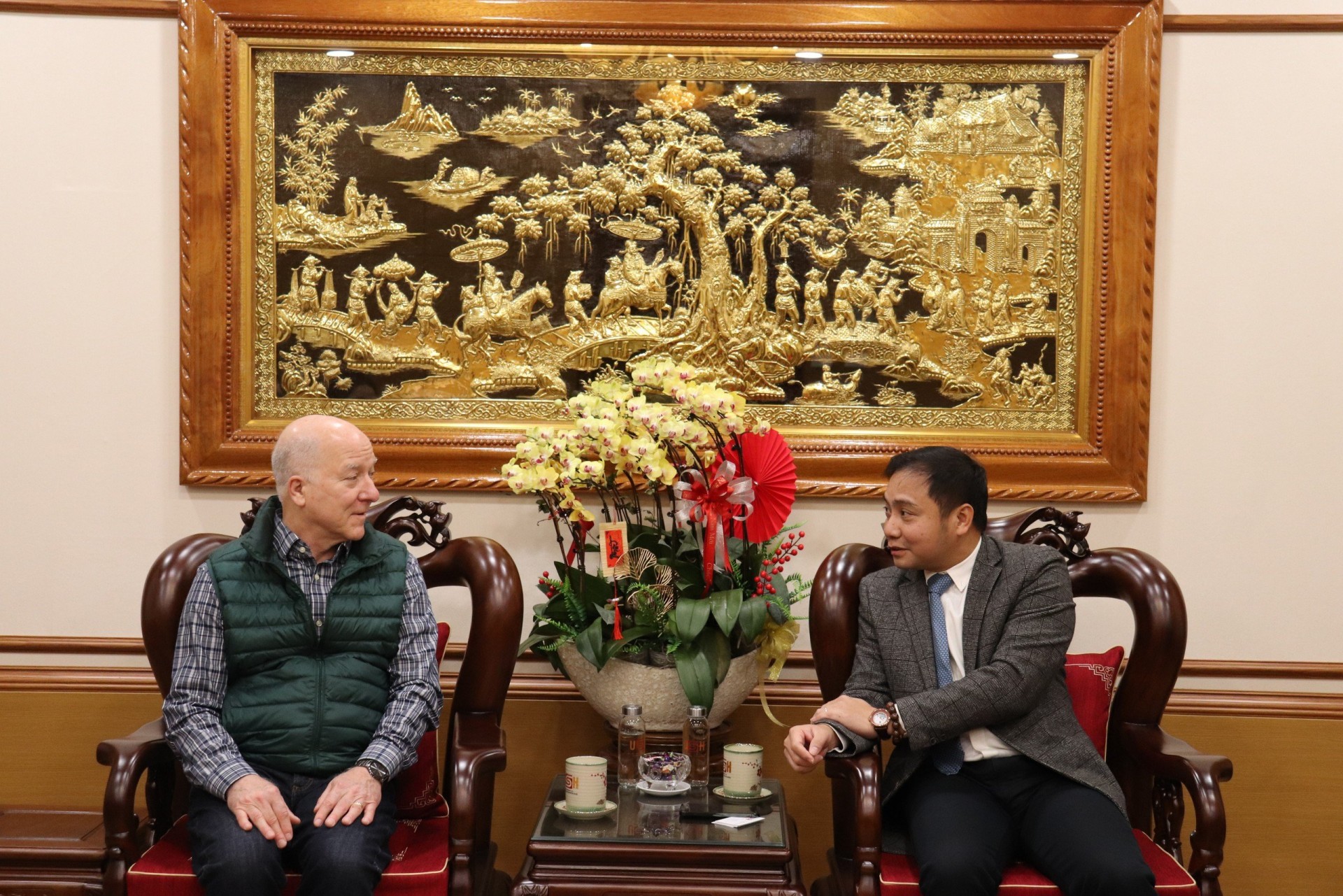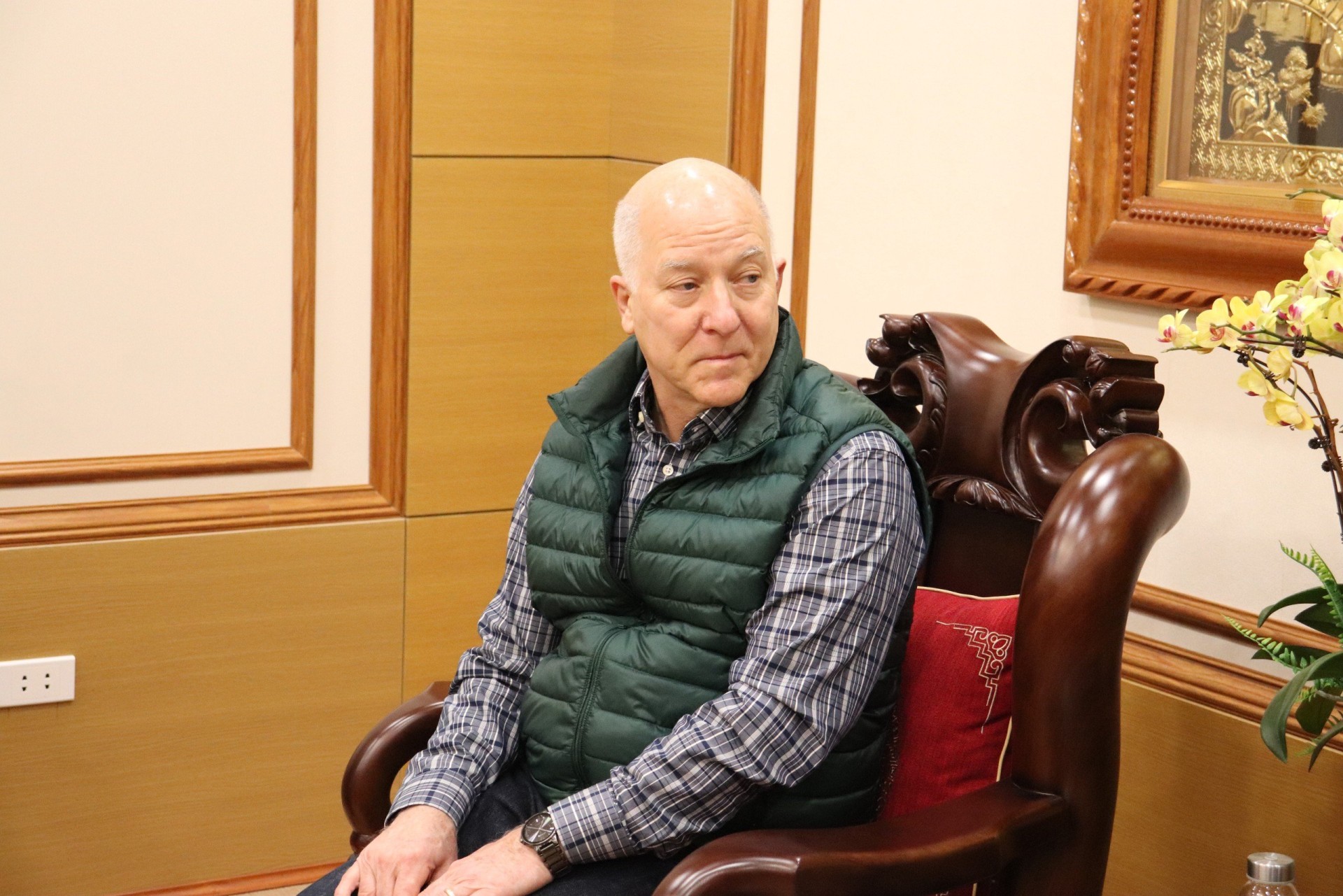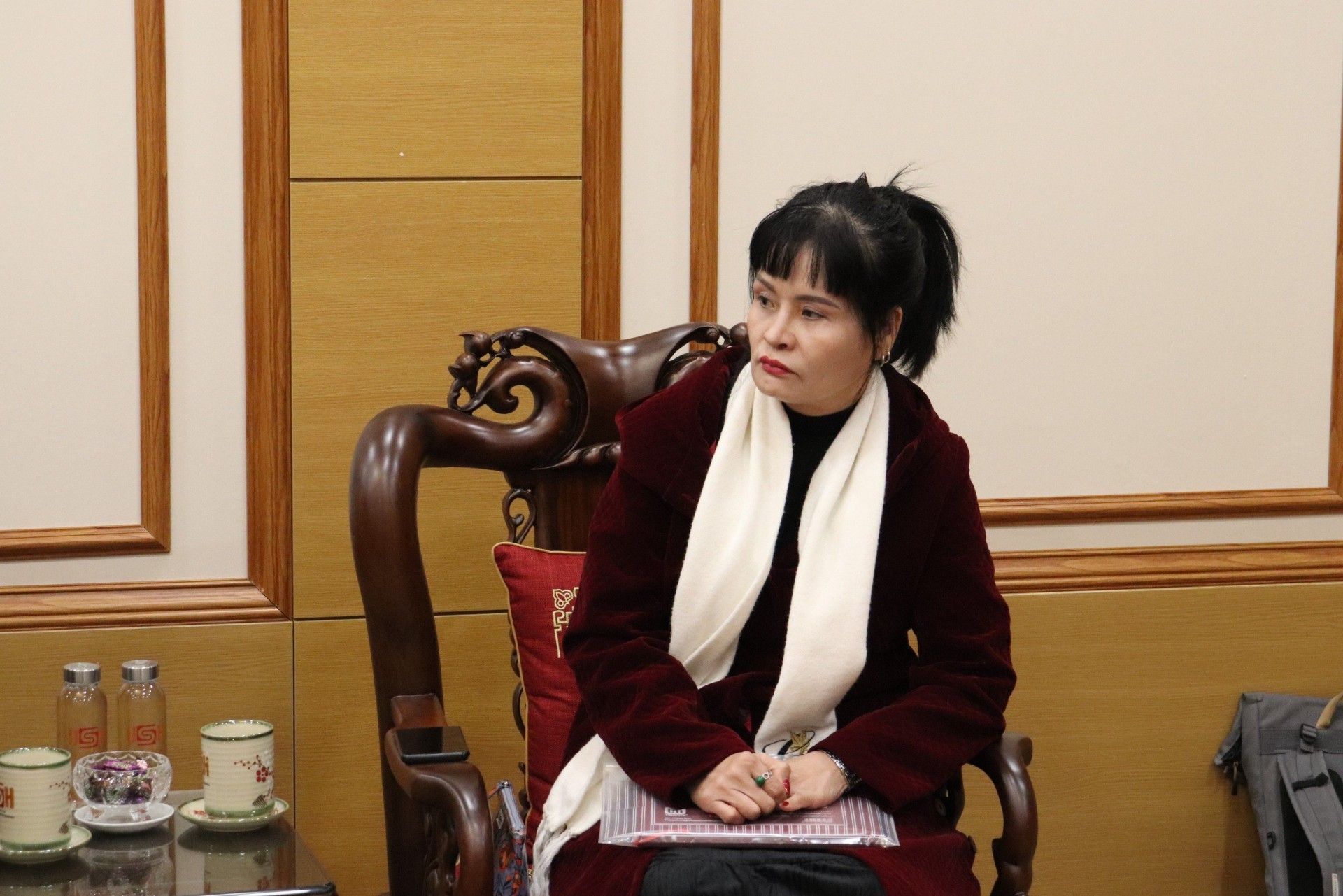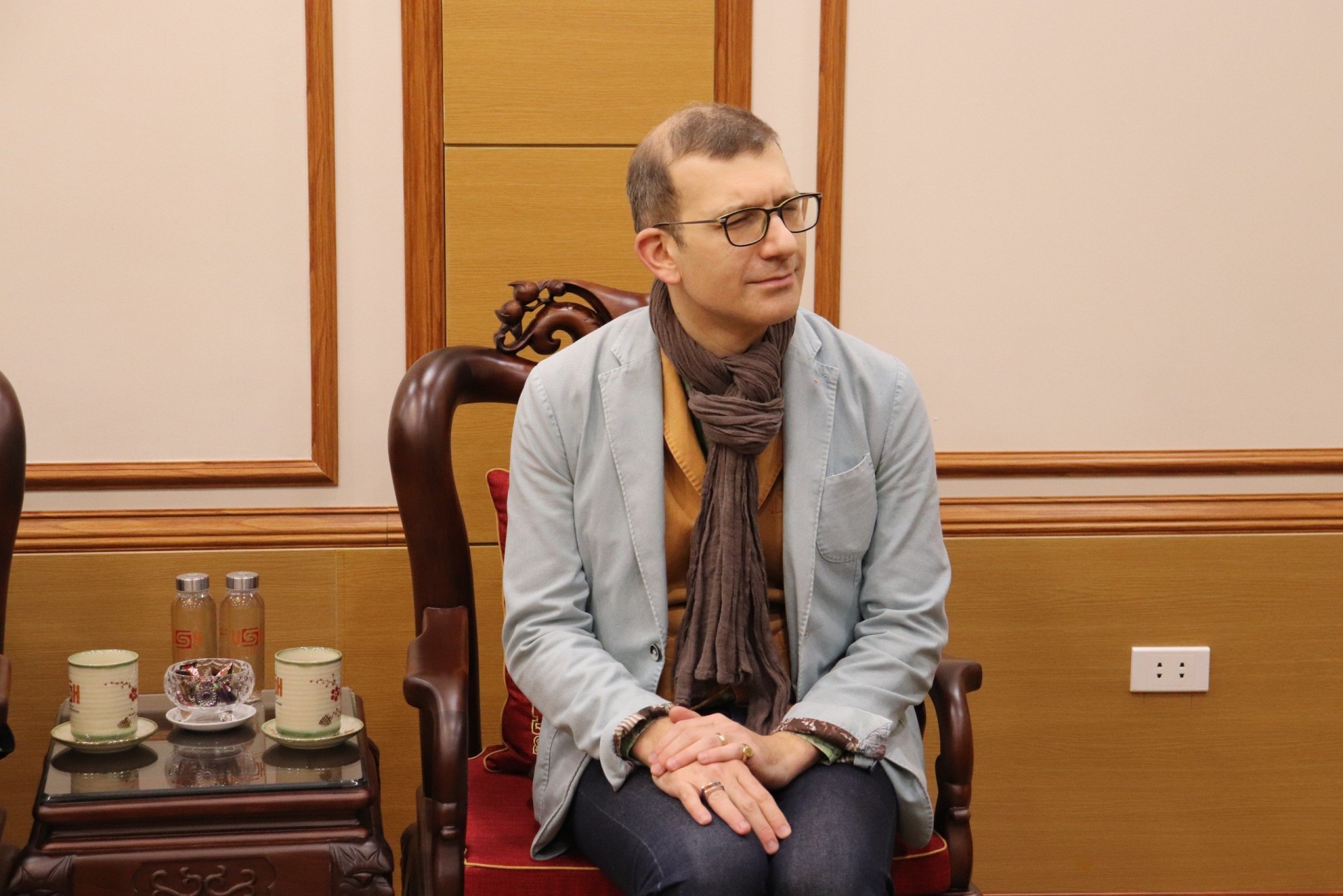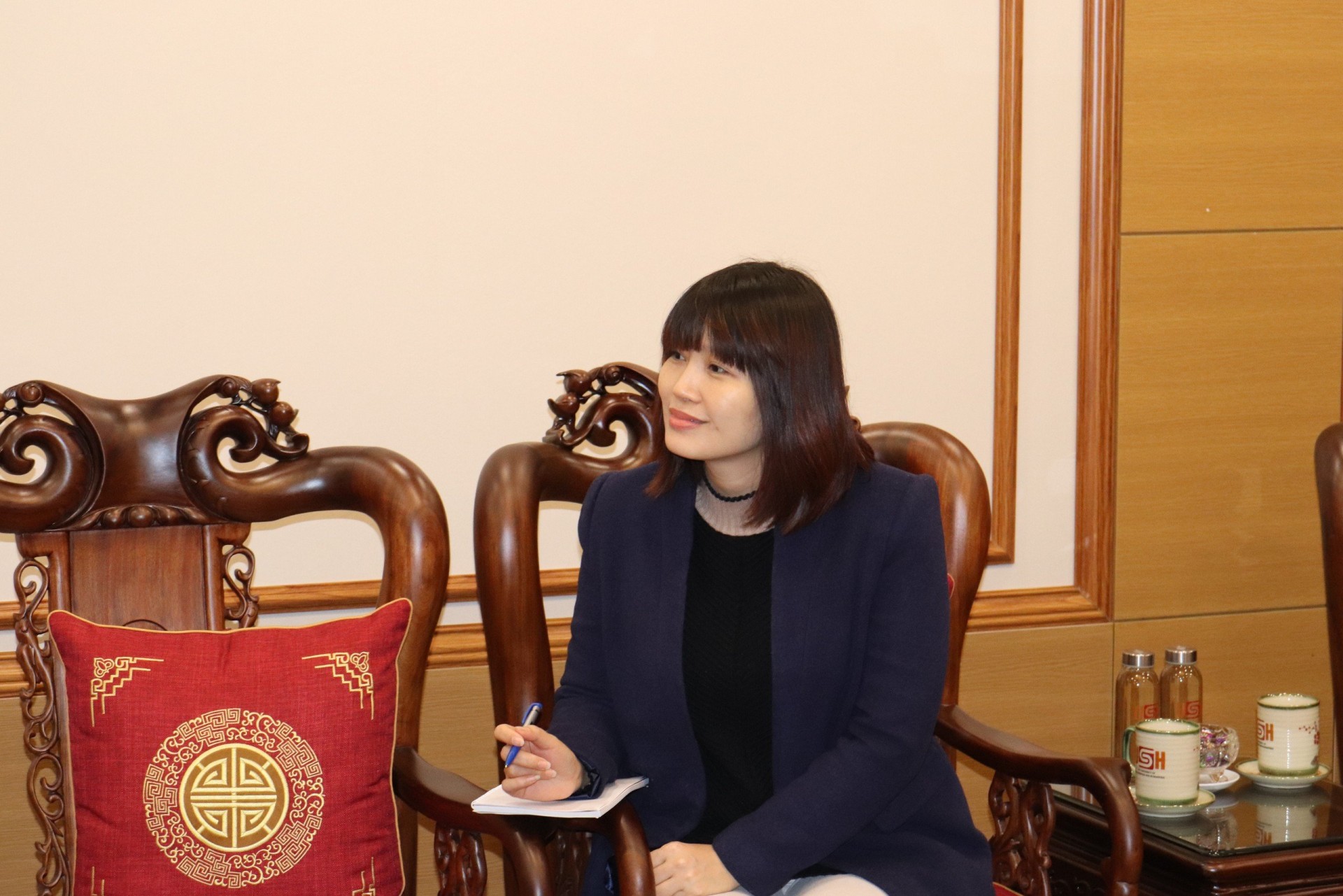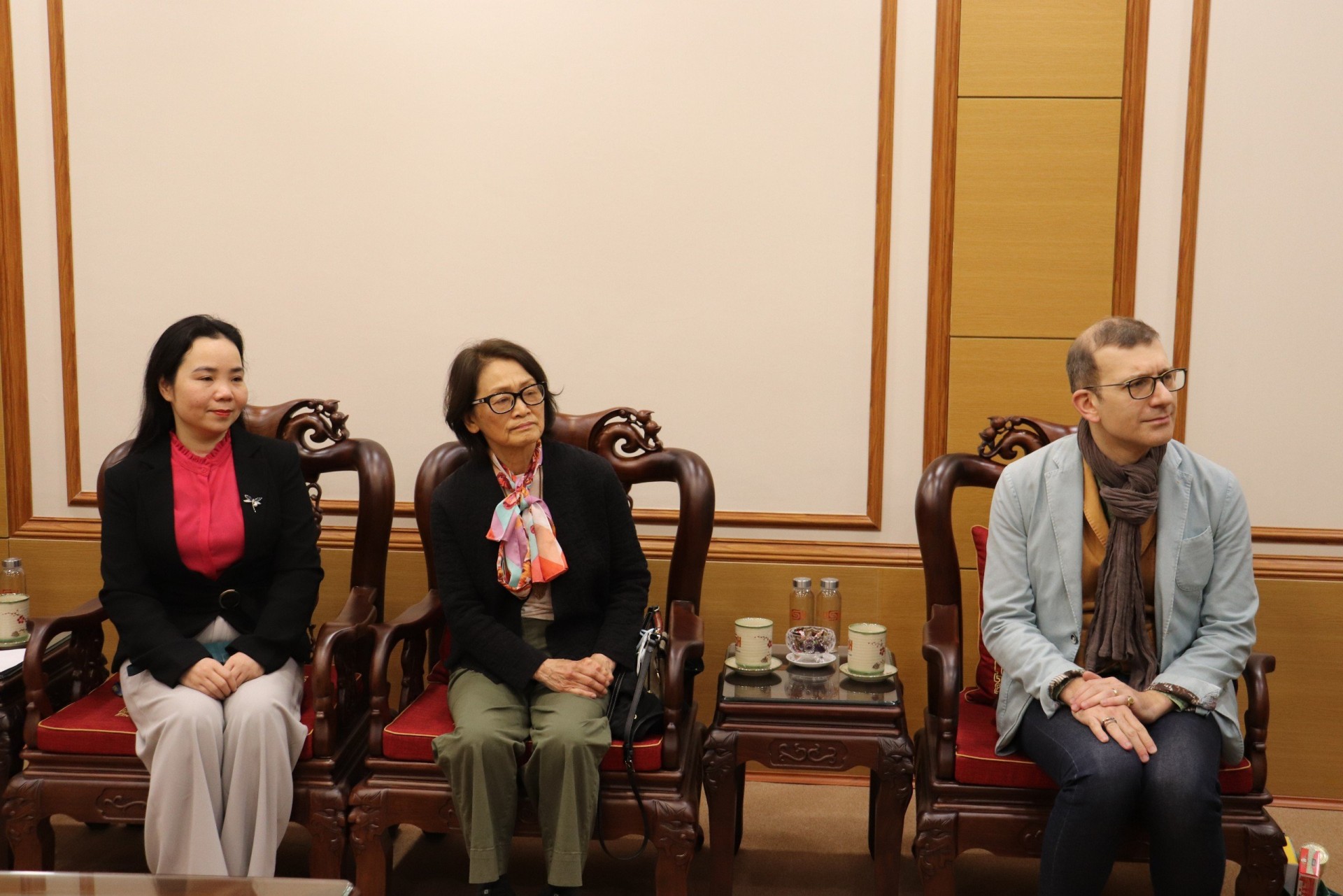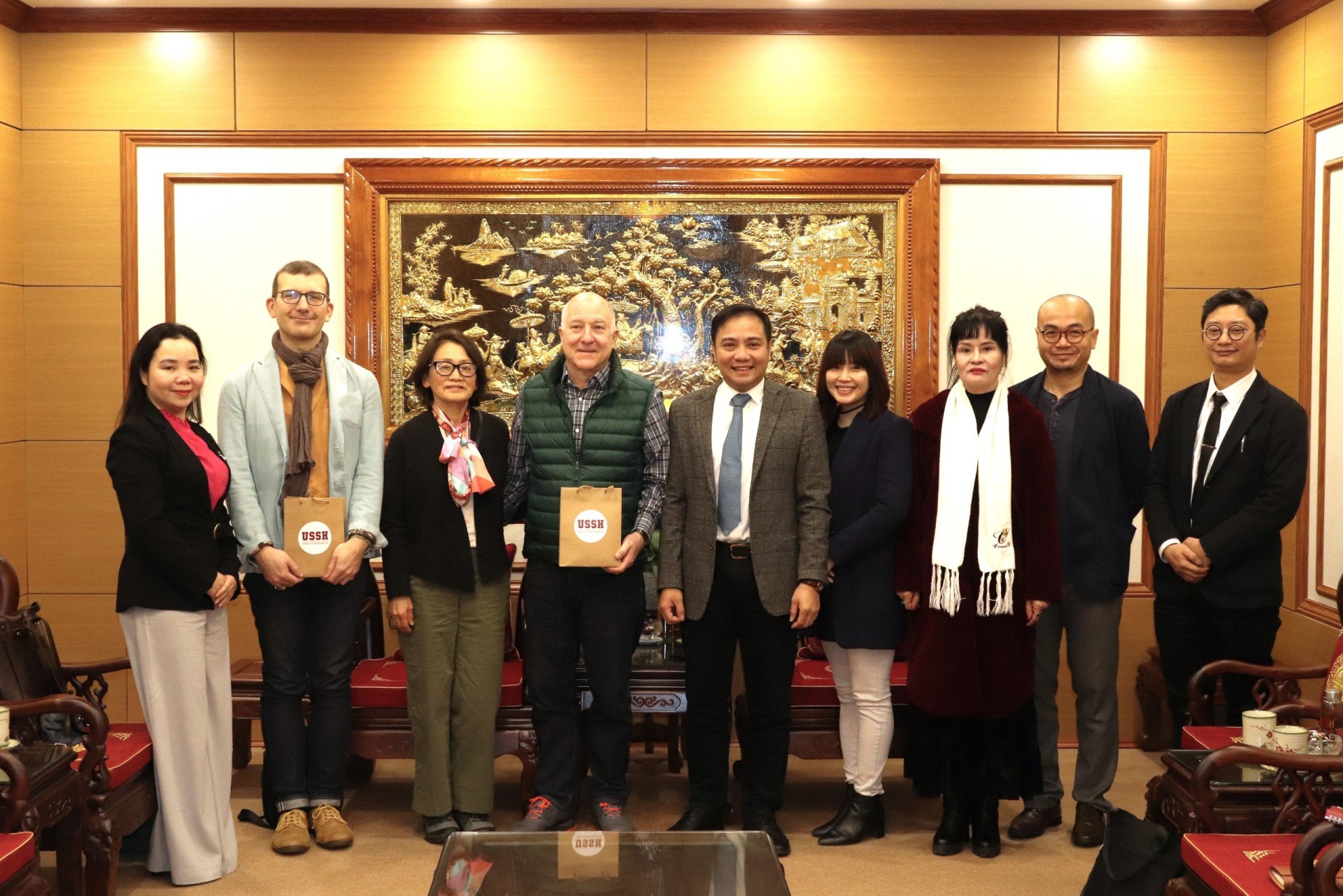Vice Rector Dao Thanh Truong expressed his sincere gratitude to the two professors.
During the meeting, Associate Professor Dr. Dao Thanh Truong shared: With the mission of leading in training high-quality, highly skilled human resources; researching, creating, and disseminating knowledge in social sciences and humanities, over nearly 80 years of history, the University of Social Sciences and Humanities has been promoting the development of basic sciences and expanding to applied sciences. With nearly 96 undergraduate and postgraduate training programs, the structure of academic disciplines at VNU-USSH is constantly being improved, aiming for the quality of international universities.
According to the Times Higher Education's October 2023 World University Ranking by Subjects 2024 (THE WUR by Subjects 2024) ranking by subject: the Social Sciences field of Vietnam National University, Hanoi (VNU) has risen to the top 501-600 globally. Also in November 2023, the University of Social Sciences and Humanities completed its 358th AUN-QA accreditation for 3 programs, bringing the total number of AUN-QA accredited programs to 12.
Associate Professor Dr. Dao Thanh Truong extended his warmest thanks to the two professors for dedicating their time and affection to the students and the Faculty of Humanities. The professors' classes not only brought Japan closer to the students of the Faculty of Humanities, but also served as a bridge to strengthen the relationship between Vietnam and Japan.
Professor William M. Bodiford shared fond memories from his short time teaching at the University of Social Sciences and Humanities..
Professor William M. Bodiford shared that the enthusiasm, warmth, and profound knowledge of the students created high-quality and vibrant learning sessions. The two professors expressed their hope for future opportunities to work and collaborate on research with faculty and scientists at the University of Social Sciences and Humanities, not only in the fields of Buddhism and Japanese Studies.
During the meeting, Associate Professor Dr. Tran Thi Kim Oanh - Head of the Department of Religious Studies - had further in-depth discussions about Buddhism and some general research directions for the future.
Professor Matthias Hayek (Institute for Advanced Studies (EPHE), Republic of France) is a specialist in the history of Japanese religious beliefs and sociology; and the history of modern and contemporary Japanese knowledge society (17th-19th centuries). He holds a Bachelor's degree in Philosophy from the prestigious University of Toulouse Le Mirail and the University of Paris IV-Sorbonne, and a PhD from the National Institute of Oriental Languages and Civilizations, France (INALCO). He has published numerous scientific research works, directly contributing to the preservation and safeguarding of Japanese cultural and historical values. Some of his well-known works include: "Re-examining Learning and Practical Learning in the First Half of the Modern Era - Focusing on Baba Nobutake - the Scholar of Kyoto" (Forum Nichi Bunken 2017); "The Initial Globalization of the Concept of Yokai - Focusing on Yokai of Southern France" ("yokai": demons/spirits).
Topics in Japanese studies taught by Professor Matthias Hayek include:
Session 1: “Knowing, Choosing, and Avoiding: The Divination Culture of Modern Japan”
Session 2: “Discourse and Interpretation of Celestial Changes (Guest Stars) and Earthly Anomalies (Earthquakes) in the late 17th and early 18th centuries”
Session 3: “Discovering Superstitions in the Early Modern Period”
Professor William M. Bodiford (Department of Asian Languages and Cultures, University of California, Los Angeles (UCLA), USA) is considered a leading expert in Japanese Buddhist studies. His research focuses on Japanese history and religion (Japanese history: medieval, modern, and contemporary periods; religion during the Tokugawa period, particularly aspects of Japanese culture related to manuscripts, printing, secrecy, education, and conversion). He is also an expert on the Tendai and Vinaya Buddhist traditions, Shintoism, folklore, popular religion, Japanese martial arts, and traditional approaches to physical culture and health.
Topics in Japanese studies taught by Professor William M. Bodiford include:
Session 1: Japanese Religion in Transition (1): Modernization - The Birth of Zen Master Dougen
Session 2: Japanese Religion in Transition (2): Modern Revival Movement - Anrakuritsu School and Chinese Buddhism
Session 3: Japanese Religion in Transition (3): Middle Ages - Ise Shrine and Buddhism.
These activities are part of the project "Promoting Academic Exchange between Vietnam, Europe, and the United States on Japanese Studies," funded by the Toshiba Foundation for International Exchange (TIFO, Japan) for the University of Social Sciences and Humanities. The main activity is a series of lectures on Japanese studies delivered by experts in Japanese studies from universities and research institutes in Europe, the United States, and Canada to students, trainees, lecturers, and researchers of the University of Social Sciences and Humanities.
Some photos from the reception.
